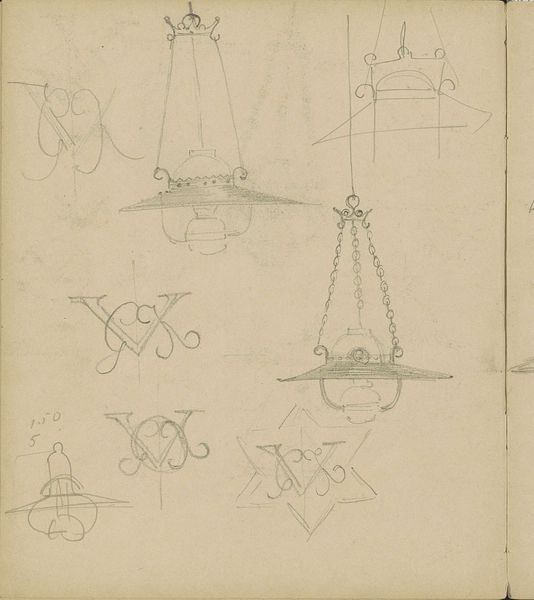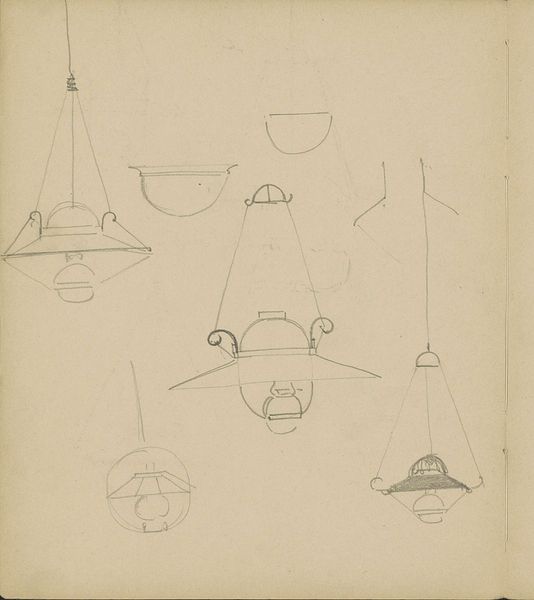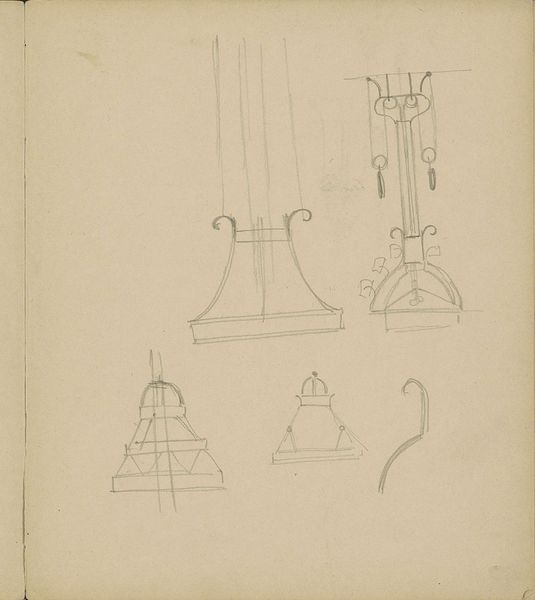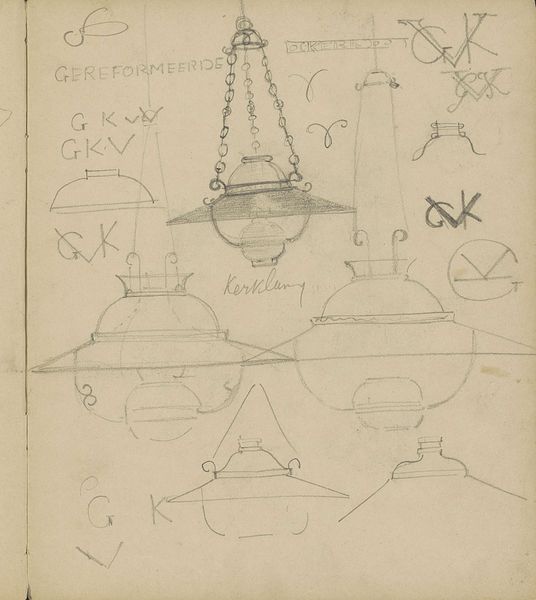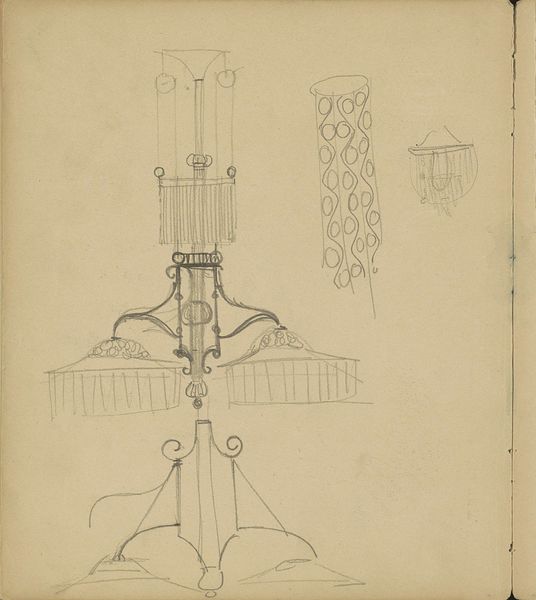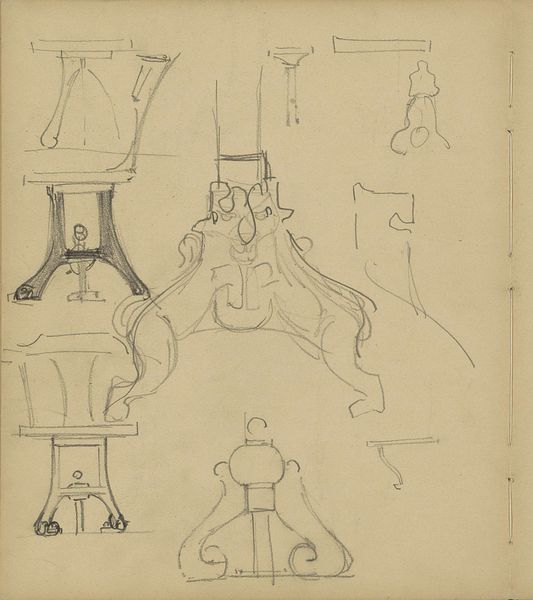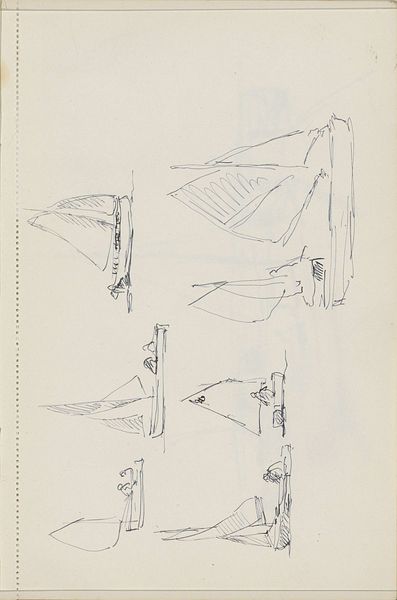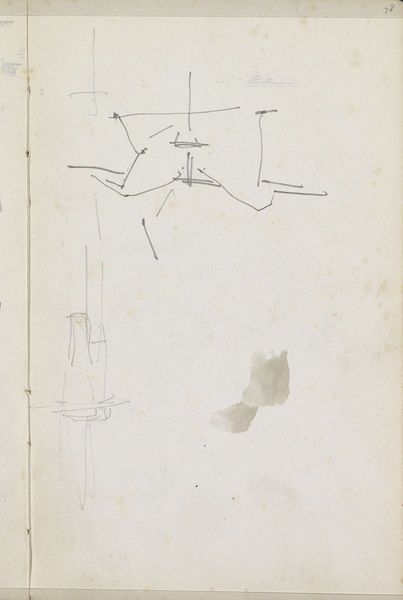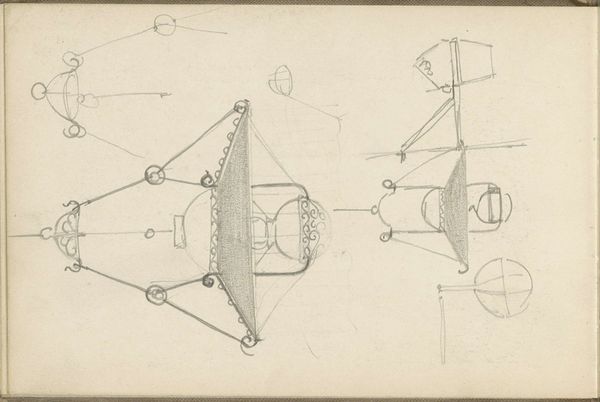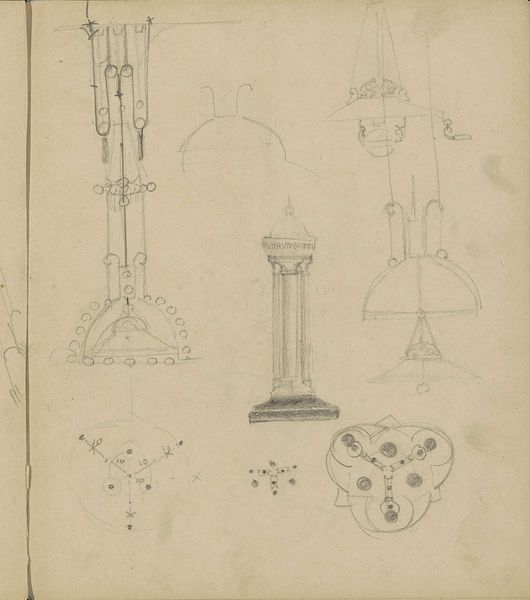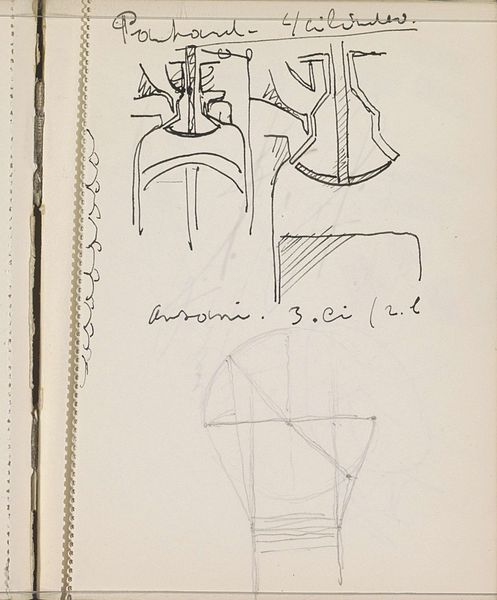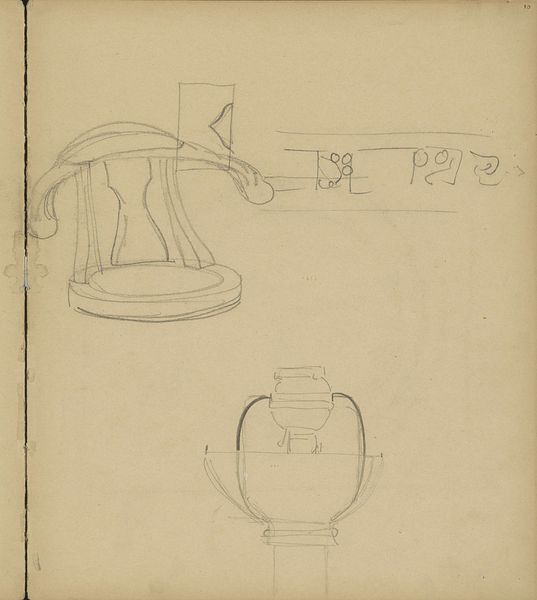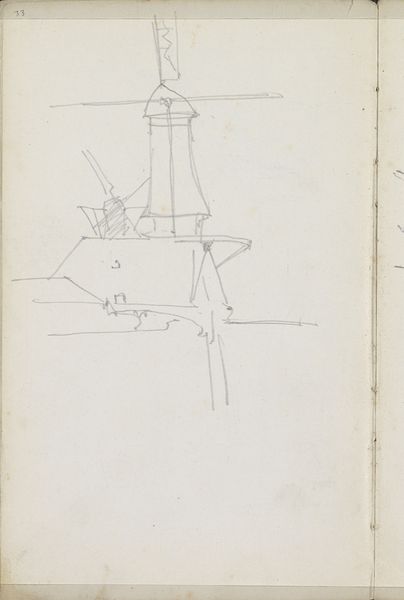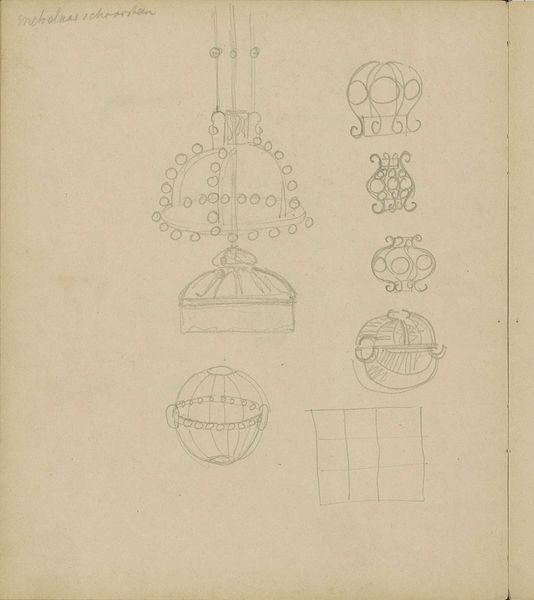
drawing, paper, pencil
#
drawing
#
aged paper
#
light pencil work
#
art-nouveau
#
quirky sketch
#
sketch book
#
paper
#
personal sketchbook
#
idea generation sketch
#
sketchwork
#
geometric
#
sketch
#
pencil
#
line
#
sketchbook drawing
#
storyboard and sketchbook work
#
decorative-art
#
sketchbook art
Copyright: Rijks Museum: Open Domain
Editor: Here we have "Ontwerpen voor lampen," or "Designs for Lamps," a pencil drawing on paper from around 1905-1906 by Carel Adolph Lion Cachet. It feels very preliminary, like a glimpse into the artist’s sketchbook. What strikes you most about this work? Curator: Well, firstly, let's situate Cachet within the historical context. As part of the Art Nouveau movement, he was deeply invested in integrating art into everyday life. These lamp designs weren't just about illumination; they were about democratizing beauty, bringing aesthetically pleasing objects into domestic spaces. Notice how the sketches incorporate geometric shapes? How does this design choice play into notions of early 20th century ideas around functionality? Editor: It’s true; there’s an effort to make even utilitarian objects artistic, but also potentially mass-producible with these simplified geometric forms. Is there an element of class critique implied? Curator: Absolutely. Art Nouveau sought to dismantle the rigid hierarchies separating fine art from craft, blurring those boundaries to empower both artists and consumers. These designs represent a direct challenge to elitist artistic traditions. The accessibility of these lamp designs could, in theory, bring modern aesthetics to a broader audience, reflecting socialist ideals. It suggests a belief in the power of art to uplift society. What does that legacy mean to us today, I wonder, looking at our own approaches to design? Editor: It’s fascinating to consider how a simple lamp design can be such a statement. I hadn’t thought about the democratizing element so explicitly, seeing just the aesthetic. Curator: It’s about uncovering those hidden layers, understanding art not in isolation, but as a reflection of social and political currents. Hopefully it will affect how you appreciate artwork going forward.
Comments
No comments
Be the first to comment and join the conversation on the ultimate creative platform.
